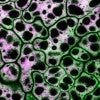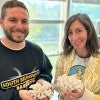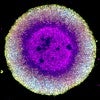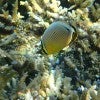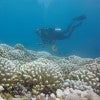Weaker transcription factors are better when they work together
August 14, 2023
Rice bioengineer Caleb Bashor and colleagues have developed a generalizable method to address “off-target” gene activation, a significant problem in the field of synthetic biology. Taking a cue from nature, the researchers showed they could all but eliminate the activation of off-target genes by designing weak transcription factors that cooperatively assemble.
Education program tackles race-based cancer health disparities
August 10, 2023
Rice U.’s Carolyn Nichol has won a competitive 5-year, $1,038,544 NIH Science Education Partnership Award (SEPA) award to address race-based cancer health disparities by increasing underrepresented minority student populations’ engagement and participation in biosciences education.
Four Rice undergraduates latest Owls to win coveted Goldwater Scholarship
July 19, 2023
Rising Rice seniors Maria Hancu, Alex Lin, Ryan Wang and Ruofeng “Charlie” Liu are the latest Owls to win the coveted Goldwater Scholarship, one of the most prestigious honors bestowed each year upon pioneering STEM undergraduates across the country planning to pursue doctoral degrees.
Rice chemist wins $3.2M National Cancer Institute grant
July 17, 2023
Rice University chemist Han Xiao has won a $3.2 million research project (R01) grant from the National Cancer Institute to develop the first tissue-specific epigenetic inhibitor drug to treat bone metastasis.
Study finds human impact on wildlife even in protected areas
June 25, 2023
The largest long-term standardized camera-trap survey to date finds that human activity impacts tropical mammals living in protected areas and sheds light on how different species are affected based on their habitat needs and anthropogenic stressors.
Rice pre-med students advocate for immigrant health equity
May 1, 2023
Shonik Ganjoo has spent his time as president of the Rice Doctors for Change chapter — in between the commitments that come with being a biosciences major and an anthropology minor — researching and advocating for immigrant health equity. He and the chapter’s vice president, Ritesh Dontula have been creating opportunities for Rice students to interact with Texas legislators on real-world issues.





